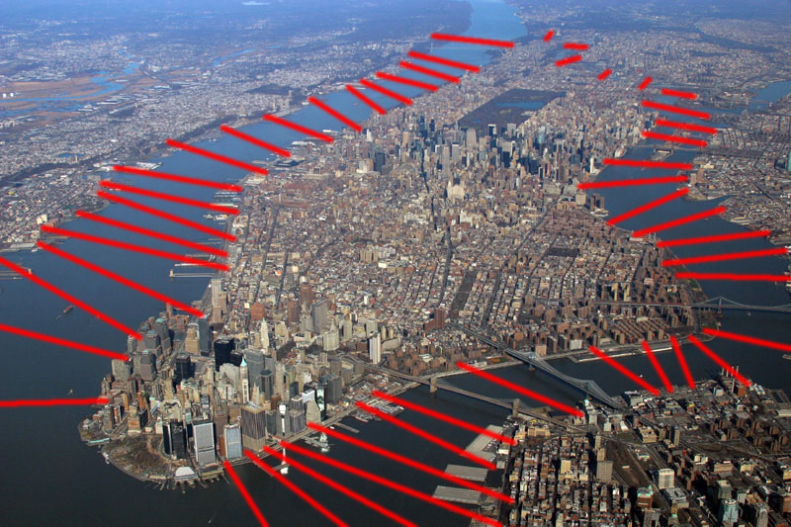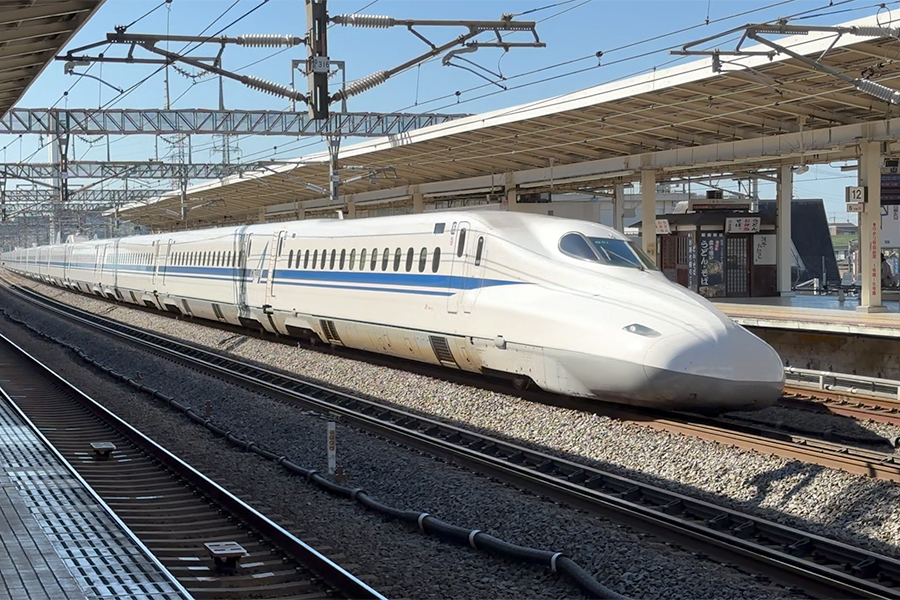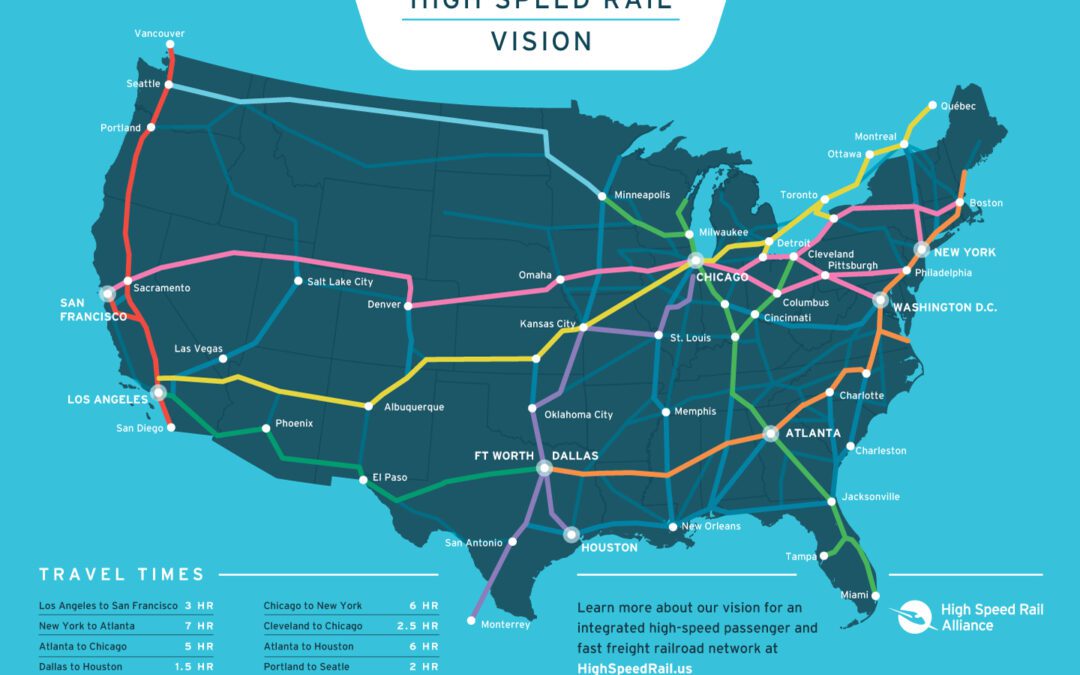Traveling last Friday through Iowa and Illinois, an eastbound Amtrak California Zephyr showed little or no sign of being affected by the CrowdStrike glitch and the cascading computer outages that followed. A morning announcement advised travelers that the café car...
I came across a stunning statistic the other day from Matt Taylor at Analysis. It would take 48 new 8-lane crossings to replace transit for commuting trips into Manhattan (not counting trips within the borough). To handle the extra cars, there would need to be 62 square kilometers of parking – larger than the surface of the island itself. Basically, if we tried to replace trains with more highways – as may elected officials want to do – it would kill America’s most economically vibrant city (and cost a lot more).
New York isn’t the only place that wouldn’t work without good train service. World cities like London, Paris, Tokyo, Hong Kong and Chicago – cities that drive economic growth – could not function without trains. And at the state level, according to the California High Speed Rail Authority, the state’s new high-speed rail project would provide the same capacity as “building 4,300 new highway lane miles, 115 additional airport gates, and four new airport runways at an estimated cost of $158 billion.” The entire rail project will cost $67 billion.
The bottom line is, trains take up a lot less space than other modes. By transporting a huge amount people in a relatively small space, they free up land to be used for homes, businesses or farmland. Our economy depends on bringing millions of people together. That can’t happen, with any efficiency, without trains. It doesn’t hurt either that even the most advanced high-speed rail systems are far more cost efficient than building the same capacity in highways or airports.
Unfortunately, many of our leaders insist on building more and more highway infrastructure because that is what we’ve always done. New roads are built every year that promote sprawl and inefficient land use – all at the expense to the tax payer. As demonstrated by Manhattan, where a more expensive auto-centric plan would destroy the city, many communities would benefit from less – not more – roads. In a time of austerity, our elected leaders must reconsider how they govern to get the most out of our investments. Prioritizing trains over other modes isn’t just an investment in our future, it is the fiscally responsible thing to do.
All the best,
Julius Parod
Manager of Communications
Midwest High Speed Rail Association
Last Week at MHSRA:
There is a critical transition happening in Illinois. Letters keep streaming in from our supporters asking Governor-elect Rauner to support passenger trains. Make sure to write to your elected officials, like Mr. Rauner if you live in Illinois, and tell them why you support passenger trains.
Articles We Enjoyed:
Gas is really cheap – but people are still flocking to public transportation
“People are saying, ‘I came because of fuel prices; I’m staying because of the experience,'”
In California’s high-speed train efforts, worldwide manufacturers jockey for position
Good overview of the major rolling stock manufacturers.
Transportation as a Bridge to Opportunity for All
Transportation is so much more that getting from one place to another.
Long-delayed U.S. high-speed rail plans may ride on Texas express
Can Texas beat California to America’s first high-speed line?
LETTER: Transportation problems affect everyone
Calls for more transportation investments in New Jersey come from an unexpected source.
Enjoy our weekly newsletter? Help keep it going with a donation of $15 or more today.
Julius Parod
Midwest High Speed Rail Association
4765 N. Lincoln Ave.
Chicago, IL 60625
773-334-6758
Join us at MidwestHSR.org/Join
The Latest from HSRA
Our Latest Blog Posts
Check out the latest news, updates, and high speed rail insights from our blog!





